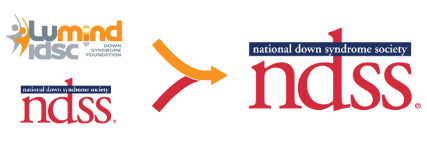Nowadays people with Down syndrome live healthier, longer, and more fulfilling lives than the generations before them. Today, children and adults with Down syndrome enjoy lives that they navigate according to their own wishes and dreams.
Across the world, people with Down syndrome make their mark on their communities by learning, working, pursuing higher education, developing relationships, and investing in hobbies and activities that add value to the wider community. It’s in the spirit of those achievements large and small that we invite you to acknowledge Down Syndrome Awareness Month with us.LuMind IDSC Foundation is celebrating Down Syndrome Awareness Month – and the vibrant Down syndrome community – by spreading kindness. Nowadays we all could use a bit of that, and we would like you to participate!
It doesn’t take much. All you have to do is think of a way how you could “make someone’s day” by performing a small act of kindness, such as: helping an elderly person cross the street, leave some bubbles on the sidewalk for kids to play, or even pay for the coffee of the person behind you. No spending is necessary, even sharing words of kindness will surely brighten someone’s day.Another important way to spread awareness about Down syndrome is to get acquainted with important facts. Spread the word about Down syndrome to even folks who might not know anything about the condition!
[fancy-ul icon_type=”none” alignment=”left” spacing=”default”]
- Life expectancy for individuals with Down syndrome has increased from age 10 in the 1960s to age 25 in the 1980s to age 65+ today.
- We are witnesses of the first generation of elderly people with Down syndrome thanks to the advancement of healthcare and research, and the relentless advocacy of people with Down syndrome and their families.
- Down syndrome occurs across all races, ethnicities, religions, and income levels.
- Down syndrome is the result of an extra copy of genetic material on all or part of the 21st chromosome.
- There are three types of Down syndrome: Trisomy 21, Mosaic, and Robertsonian Translocation.
- Trisomy 21 is the most common type of Down syndrome, accounting for 95% of cases.
- By age 40, the brains of almost all individuals with Down syndrome have significant levels of amyloid plaques, one of the hallmarks of Alzheimer’s disease.
- A key challenge for primary care physicians, specialists, and families is the inability to distinguish between cognitive decline due to Alzheimer’s Disease and cognitive impairment due to Down syndrome.
- More than 70% of people with Down syndrome develop sleep apnea, which increases risk of cardiac disease and memory deficits.
- Fewer than 5% of people with Down syndrome in the United States receive care at a specialized Down syndrome clinic.
[/fancy-ul]Now let’s spread awareness and kindness! Click the button below to learn more:
